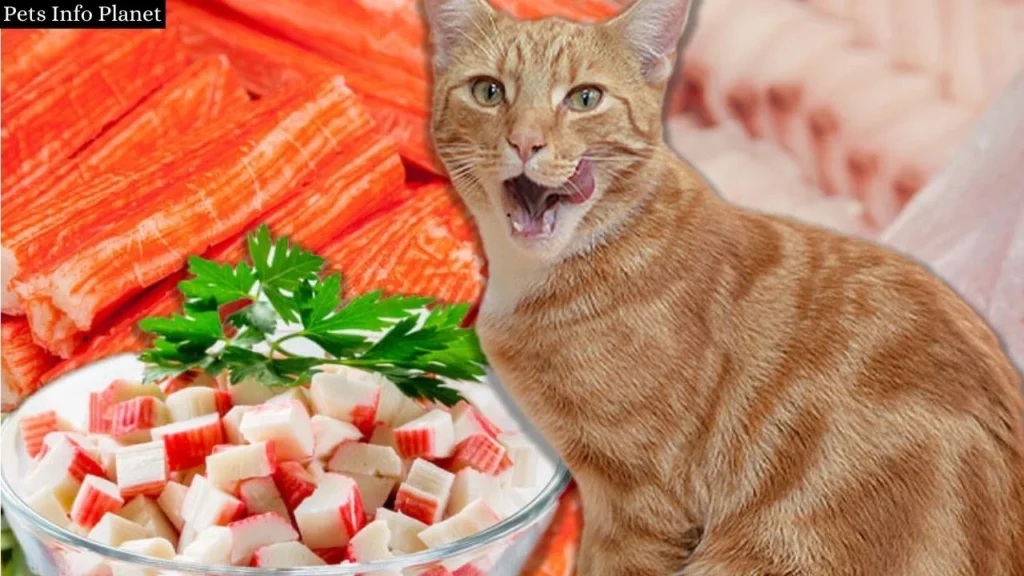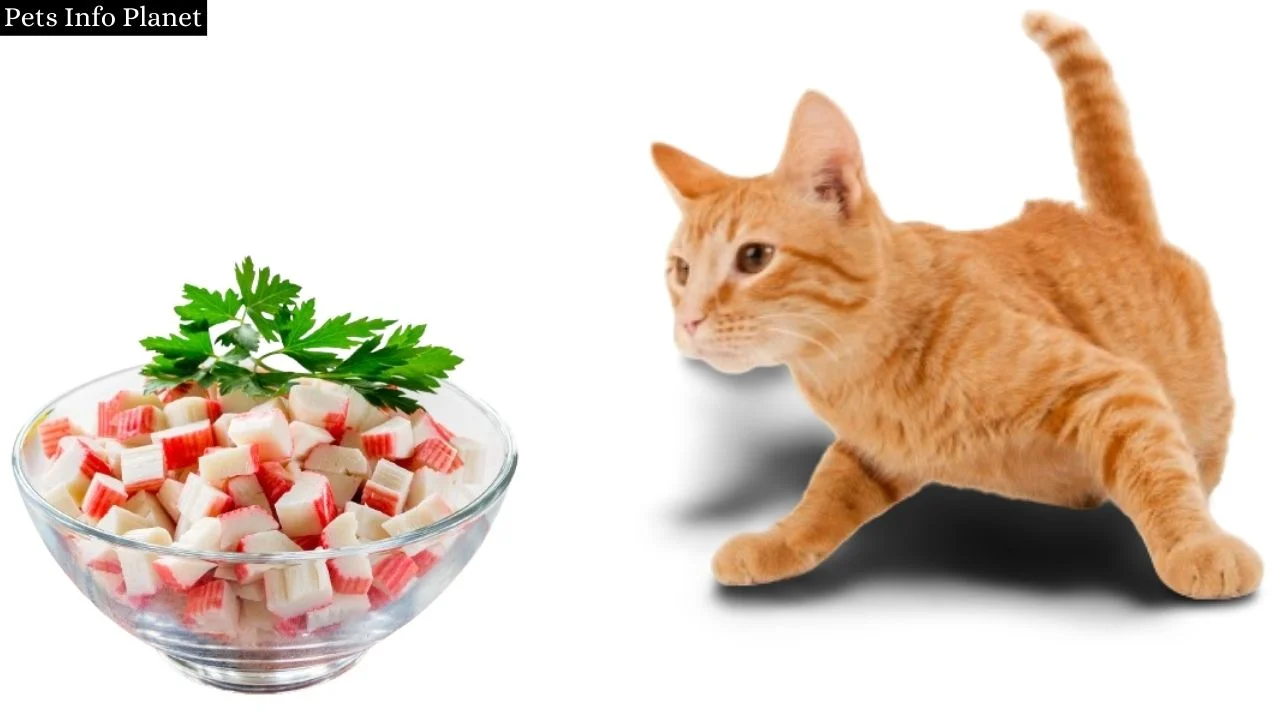Can cats eat imitation crab? This comprehensive guide delves into the safety and suitability of imitation crab for our feline friends. Imitation crab, often made from a combination of fish proteins, starches, and flavorings, may raise concerns among cat owners regarding its impact on their pet’s health. Understanding whether cats can eat imitation crab becomes crucial to ensuring their well-being.
While cats are obligate scavengers and thrive on a diet rich in animal proteins, imitation crabs lack the essential nutrients for optimal health. Despite resembling real crab meat, imitation crab may not offer the same nutritional benefits. Hence, cat owners must exercise caution when adding imitation crab to their pet’s diet. By exploring the potential risks and benefits, pet owners can make informed decisions regarding whether cats can eat imitation crab without compromising their cat’s health and nutrition.
The Nutritional Suitability of Imitation Crab for Cats
When assessing the nutritional suitability of imitation crab for cats, it’s essential to consider the ingredients and their potential impact on feline health. While imitation crab may resemble real crab meat, its composition differs significantly. Typically made from a blend of fish proteins, starches, and flavorings, imitation crab lacks the essential nutrients that cats require for optimal health.
The question arises: can cats eat imitation crab safely? While cats are obligate predators and thrive on a diet rich in animal proteins, imitation crab may not provide the necessary nutrients in the same way that real crab does. The absence of vital nutrients such as taurine, crucial for feline heart health and vision, raises concerns about the suitability of imitation crabs for cats.
Furthermore, some imitation crab products may contain additives, preservatives, or flavor enhancers that could harm cats if consumed in large quantities. Therefore, while small amounts of imitation crab may not pose an immediate danger to cats, cat owners must exercise caution and consider alternatives that better align with their pet’s nutritional needs. Ultimately, when asking, “Can cats eat imitation crab?” It’s crucial to prioritize the well-being and health of our feline companions.
Risks and Concerns: Can Cats Eat Imitation Crab?
When considering whether cats can eat imitation crab, it is crucial to weigh the possible risks and concerns associated with this imitation seafood product.
Digestive Issues:
Imitation crab may contain additives, artificial flavorings, and preservatives that can be challenging for cats to digest. If consumed in large quantities, these additives could lead to gastrointestinal upset, including vomiting and diarrhea. Therefore, monitoring your cat’s reaction to imitation crab and limiting its intake is essential to avoid digestive issues.
Nutritional Deficiencies:
Unlike real crab meat, imitation crab lacks crucial nutrients that cats need for their health and well being. This includes taurine, an amino acid vital for feline heart health and vision. Without adequate taurine intake, cats may develop serious health issues over time. Additionally, imitation crab may not provide sufficient protein or other nutrients for a balanced feline diet.
Allergic Reactions:
Some cats may have allergies or sensitivities to certain ingredients commonly found in imitation crab, such as fish proteins or artificial additives. Allergic reactions can manifest as skin irritations, itching, or respiratory problems. If your cat exhibits any signs of an allergic reaction after consuming imitation crab, it’s crucial to consult a veterinarian promptly.
Imitation Crab vs. Real Crab: Which is Safer for Cats?

In the debate over whether cats can eat imitation crab versus real crab, several factors come into play when considering the safety and suitability of each option for feline consumption.
Nutritional Value:
Real crab offers a plethora of nutrients beneficial to feline health, including high-quality protein, omega-3 fatty acids, vitamins, and minerals. These nutrients support various bodily functions and promote overall well-being in cats. On the other hand, imitation crab often lacks the essential nutrients in real crab, making it a less optimal choice for feline nutrition.
Allergenic Potential:
While natural and imitation crab may trigger allergic reactions in some cats, the likelihood of an adverse response may vary. Real crab contains natural proteins that can induce allergic reactions in sensitive cats, whereas imitation crab may contain additional additives or flavorings that could exacerbate allergic responses. Therefore, cat owners should be cautious when introducing either type of crab to their feline companions, especially if the cat has a history of food sensitivities.
Digestibility:
Real crab is a natural source of easily digestible protein for cats, making it a suitable option for most feline diets. In contrast, imitation crabs may contain fillers or binders that could hinder digestion and potentially lead to gastrointestinal issues in some cats. Ensuring cats can digest their food effectively is crucial for their overall health and comfort.
Moderation and Alternatives: Managing Your Cat’s Diet with Imitation Crab

Moderation is vital when incorporating imitation crab into your cat’s diet to ensure health and well-being. Additionally, exploring alternative options can provide variety while meeting your cat’s nutritional needs.
Portion Control:
While small amounts of imitation crab may be safe for cats, limiting their intake is essential to avoid potential health issues. Feeding imitation crab as an occasional treat rather than a staple in your cat’s diet can help prevent digestive upset and nutritional imbalances. Monitoring the quantity of imitation crab your cat consumes is crucial for maintaining their health.
Balanced Nutrition:
To ensure your cat receives the required nutrients, supplementing their diet with high-quality cat food is essential. Cat food explicitly formulated for feline nutritional requirements provides a balanced amalgamation of protein, vitamins, and minerals necessary for your cat’s health. Incorporating imitation crab as an occasional treat alongside a balanced diet can offer variety without compromising your cat’s nutritional intake.
Alternative Treats:
Exploring alternative behaviors that are safer and more suitable for cats can provide variety in their diet. Opting for cat-friendly treats made from real meat or fish ensures your cat receives high-quality protein and essential nutrients without the risk of additives or artificial ingredients in imitation crab. Additionally, offering fresh fruits or vegetables as occasional treats can provide additional nutrients and improvement for your cat.
Conclusion
In conclusion, “Can cats eat imitation crab?” prompts careful consideration of feline dietary needs and potential risks. While cats are obligate carnivores, imitation crabs lack essential nutrients like taurine, which is vital for heart health and vision. Digestive issues, nutritional deficiencies, and allergic reactions are valid concerns associated with feeding cats imitation crab. Real crab offers superior nutritional value compared to its imitation counterpart.
Moderation and alternative treats are vital in managing a cat’s diet, ensuring balanced nutrition while occasionally incorporating imitation crab. However, cat owners must prioritize their pet’s well-being by monitoring intake and consulting a veterinarian if any adverse reactions occur. While cats can consume imitation crab in moderation, prioritizing their health entails cautious decision-making and adherence to balanced nutrition. So, to answer the query, “Can cats eat imitation crab?”—yes, but with discretion and moderation for their optimal health and nutrition.
FAQ’s
What seafood can cats eat?
In moderation, cats can safely eat certain types of seafood, such as cooked fish (salmon and tuna) and shrimp. However, it’s crucial to avoid feeding them raw fish or seafood containing bones or high levels of mercury.
Are cats allowed to eat crab meat?
Yes, cats can eat crab meat in moderation. It’s a good source of protein and nutrients. However, to avoid potential hazards, removing any shells or bones and ensuring the crab meat is cooked thoroughly is important.
Can animals have imitation crabs?
While animals can technically consume imitation crab, it’s not commendable due to its lack of nutritional value and potential additives harmful to pets. Providing them with species-appropriate food options for their health and well-being is safer.

